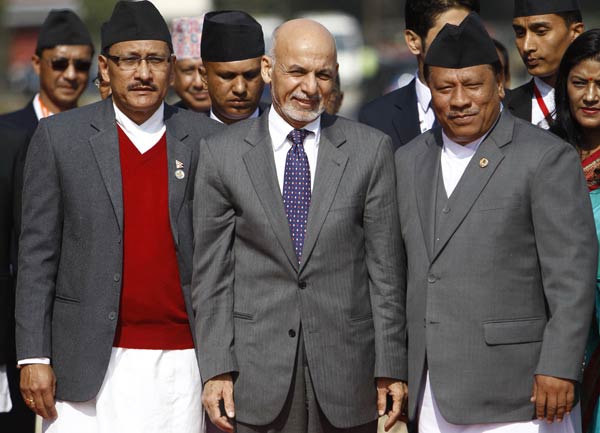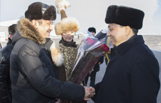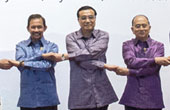Afghanistan will not endanger regional security, says Ghani at SAARC
(Xinhua) Updated: 2014-11-26 16:35
 |
|
Afghanistan's President Ashraf Ghani (C) poses for a picture upon his arrival to take part in the 18th South Asian Association for Regional Cooperation (SAARC) summit in Kathmandu November 25, 2014. [Photo/Agencies] |
KATHMANDU -- Afghan President Ashraf Ghani said Wednesday the Afghanistan will not allow its territory to be used to harm its neighbors.
Addressing the opening of the 18th Summit of the South Asian Association for Regional Cooperation (SAARC), Ghani dwelt extensively on the challenges Afghanistan faces and called for greater integration with his more affluent partners to spur economic growth.
Counterterrorism and security are also high on the agenda of the regional leaders' meeting under the theme "Deeper Regional Integration for Peace and Prosperity."
"Deeper integration within SAARC requires greater trust in making genuine solutions to understand the root causes of terrorism. Every problem must not be seen as a nail to be hit with the hammer of force," he said.
Asia's economic boom needs to be tapped into by the rest of the SAARC countries, Ghani noted, especially in the field of energy where significant gas and oil resources could be used regionally to push up growth.
"Seeing Asia as a single region opens up new space for regional cooperation. It is not just integration but innovation that will promote cooperation," he said.
Ghani also talked extensively about the need to promote accountability within Afghanistan to build a peaceful future and expressed appreciation for support from the SAARC members.
Ghani also called on all countries to implement agreements signed at this summit. Foreign ministers from the member states are expected to sign the SAARC Railway Agreement, Motor Vehicle Agreement and Framework Agreement on Energy Cooperation.
A 31-point draft declaration that touches on a wide range of issues including counterterrorism, trade and investment promotion, infrastructure development, youth employment, telecommunication tariff cuts, regional connectivity, social security for elderly people, literacy, and SAARC's transformation into the South Asian Economic Union by 2030 is to be released at the end of the summit.
Born in 1985 in Bangladesh, SAARC groups eight South Asian countries - Afghanistan, Bangladesh, Bhutan, India, Maldives, Nepal, Pakistan and Sri Lanka. Afghanistan joined SAARC as its eighth member state in 2007.
- Afghan leader's visit to Pakistan resolves 13 years of differences
- Afghan official: Suicide attack toll at least 50
- President Ghani's visit bridges Pakistan-Afghan trust gap
- New Afghan president on key Pakistan mission
- Afghan president arrives in Pakistan for key security talks
- Premier outlines Afghan proposals










